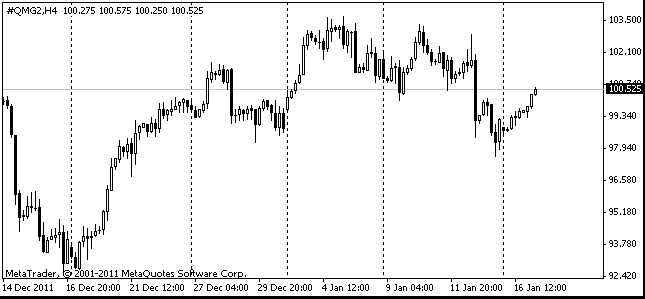Yesterday afternoon the pressure on the single currency grew high. However, it wasn't strong enough to endanger the support of 1.30. The reason is absolutely unimpressive news on the EU economy. First of all, Germany's trade surplus is on the decline. The country had a great advantage in the second and third quarters due to depreciating of the euro. But the return of the euro above 1.30 reduced competitiveness of the European goods in the export markets. Also the continuing austerity inside the region keeps putting pressure on the domestic demand. Later the unemployment stats were released. As expected, unemployment hit a new maximum of 11.8%. Moreover, the retail sales fell short of economists' expectations – in November they grew just by 0.1% after the decline by 0.7% in October. In comparison with November 2011 this indicator has fallen by 2.6%. Germany's factory orders, published an hour later, promise nothing good to the region either. In November the decline made 1.8% and against the previous year it totals 1%. Yet despite this negative news background, the bears managed to shift eurusd only down to 1.3050. It seems that the pair is about to consolidate there, so, quite likely, the bulls will try to stir up the market today. The similar situation is observed in the American exchanges, where the desire to correct the rally finds no sound reason. In the USA the news background will be formed by corporate reports for the previous quarter, no important statistics are expected today. Returning to Germany, the only news deserving attention here is that on industrial production. But we shouldn't expect any surprises here. Important events are on tomorrow's agenda – ECB's Governing Council and draghi's comments.

GBP/usd
For Britain this day will probably be more interesting since the pair is close to 1.60. The country's trade balance statistics for November have proved to be worse than expected – the deficit of £9.16bln against the forecasted 9bln. We've seen that in the recent months the BOE and the government's hopes for rebalancing due to exports have dashed against the harsh reality. Against the expectations the deficit was growing as a result of decreasing imports and low demand in the Mainland Europe. The best way out for Britain now is to make business-interventions in the future projects, which may ensure advantage in more favourable times. The sterling still feels comfortable above 1.60, so the government should think of another portion of non-traditional stimuli. The habitual QE can do nothing more for the country.

EUR/JPY
The yen is again trying to go down after the attempts to grow at the beginning of the week. The formal reason is Finance Minister's confirmation of the government's intention to purchase ESM's bonds. In theory it should maintain growth of EURJPY. Moreover, as reported by unnamed sources, at its meeting in January the BOJ will again consider expanding the stimulation programme and raise the inflation target to 2%.

oil
Oil finds it hard to grow this week. Actually, there's no growth at all, just fluctuations around $93 per barrel in WTI. It's good that this is above the 200-day MA as it will possibly support purchases technically. And it's bad that supply in the USA is growing while demand in Europe is falling.
